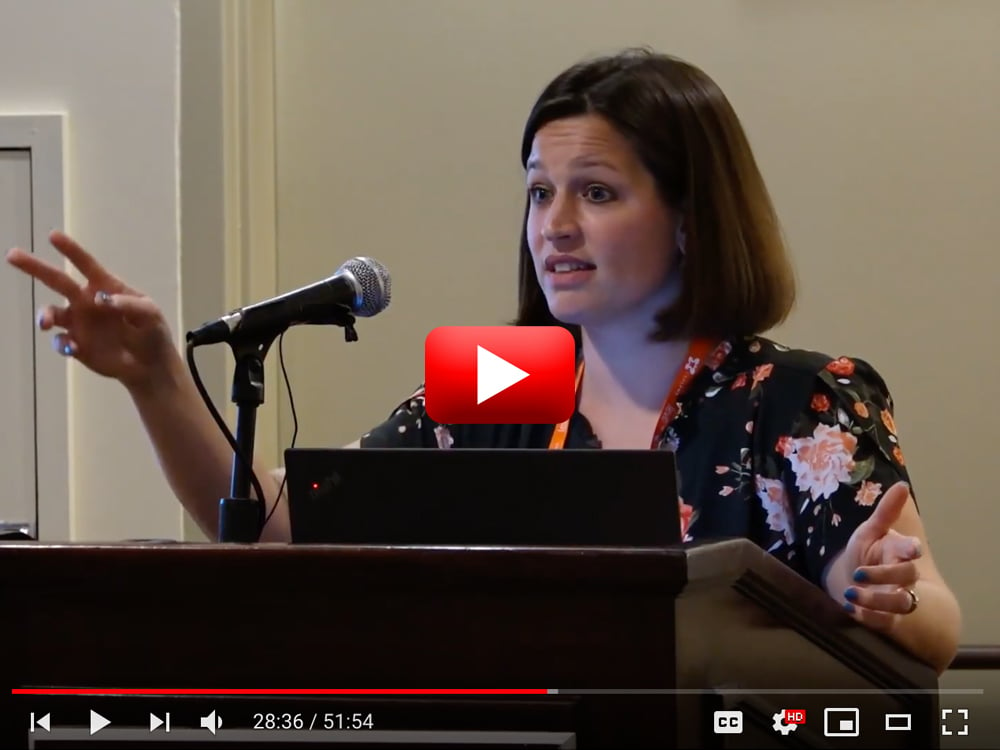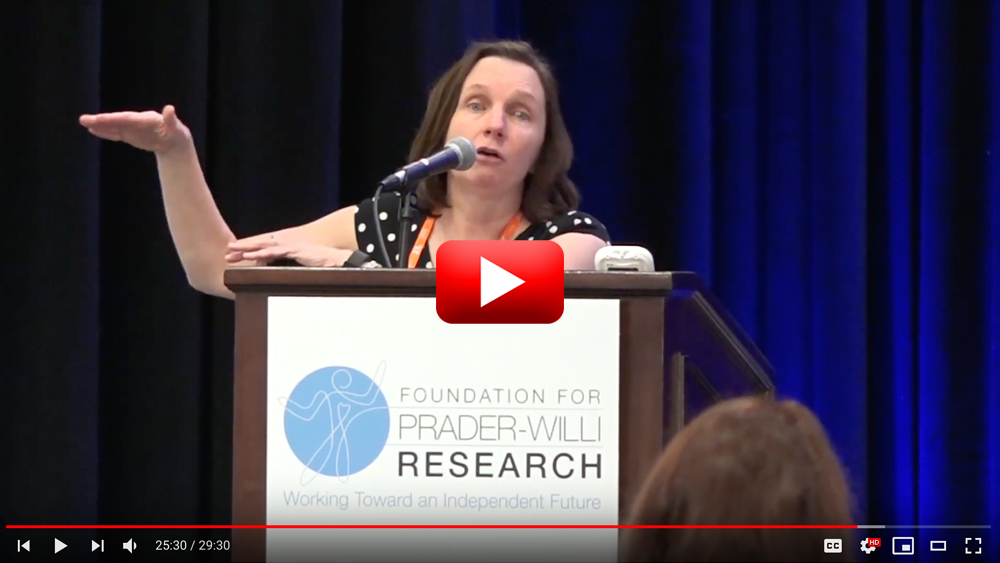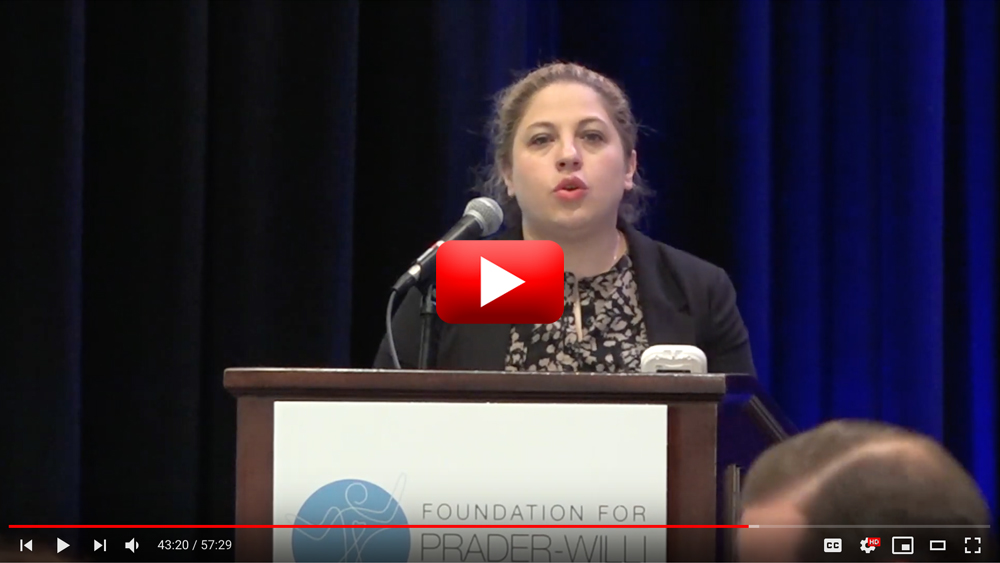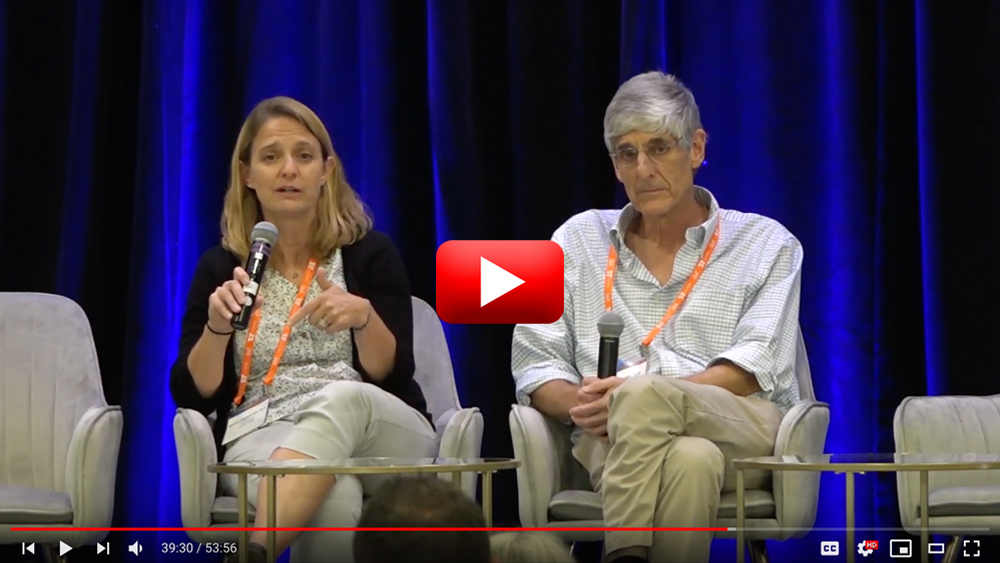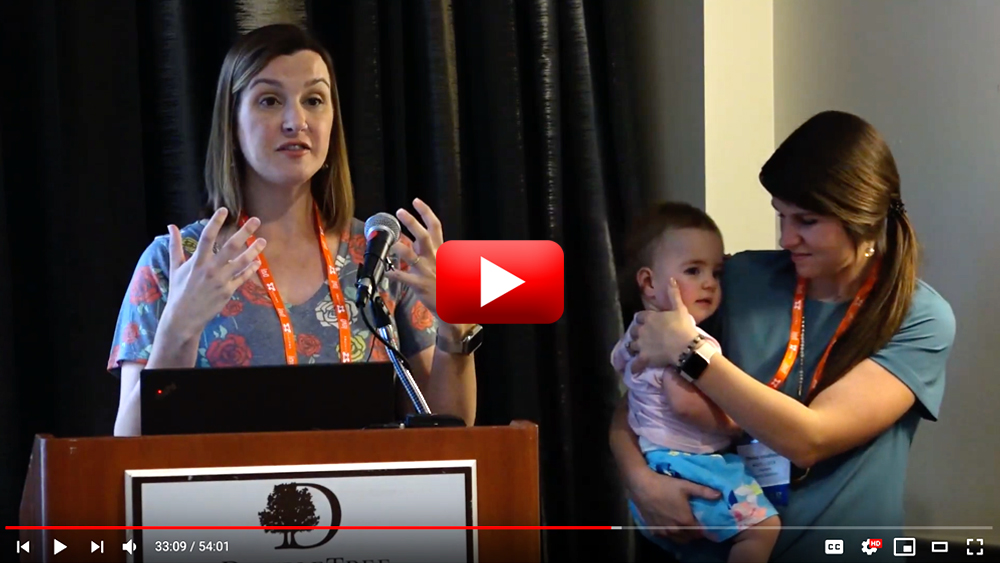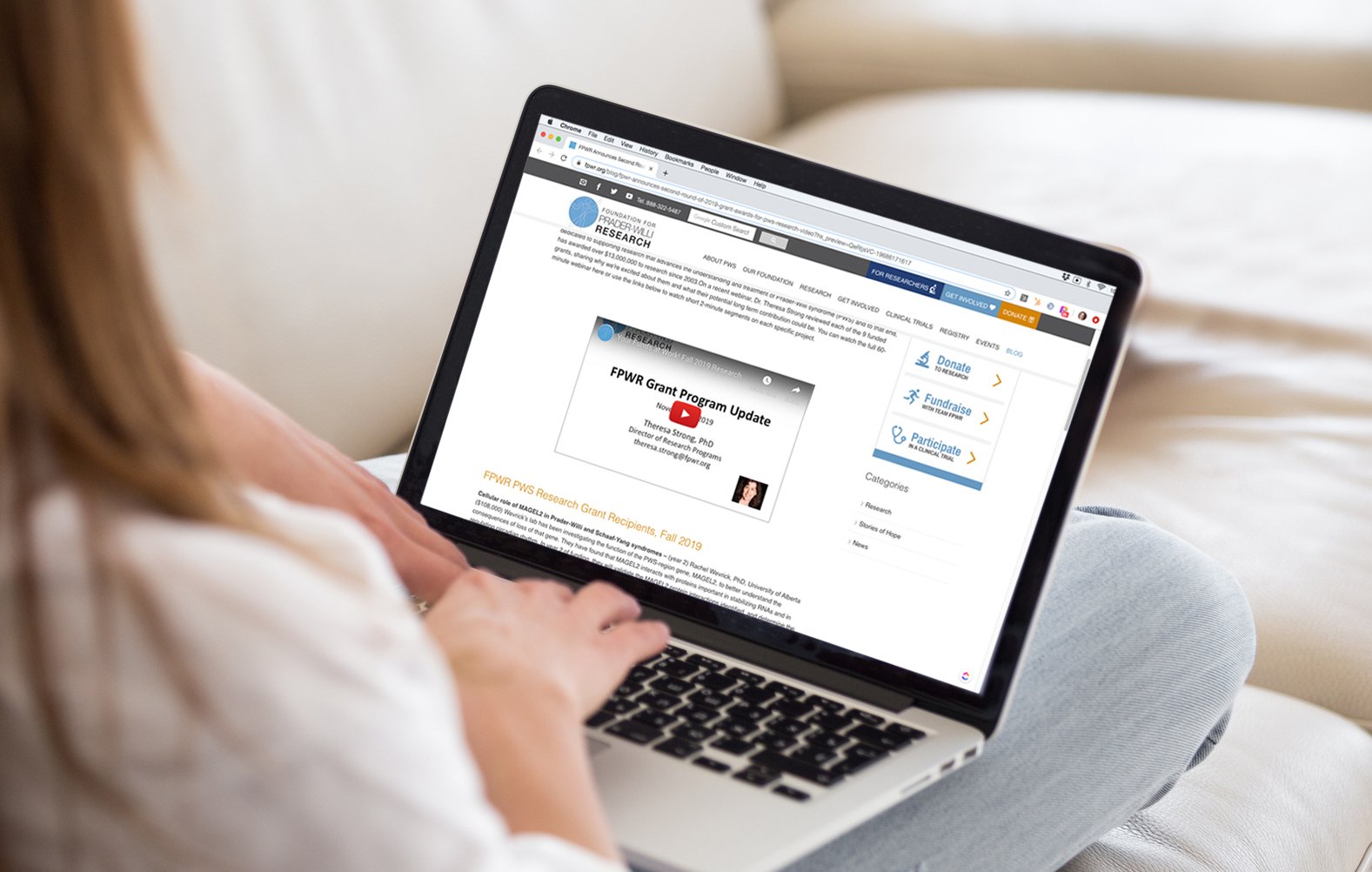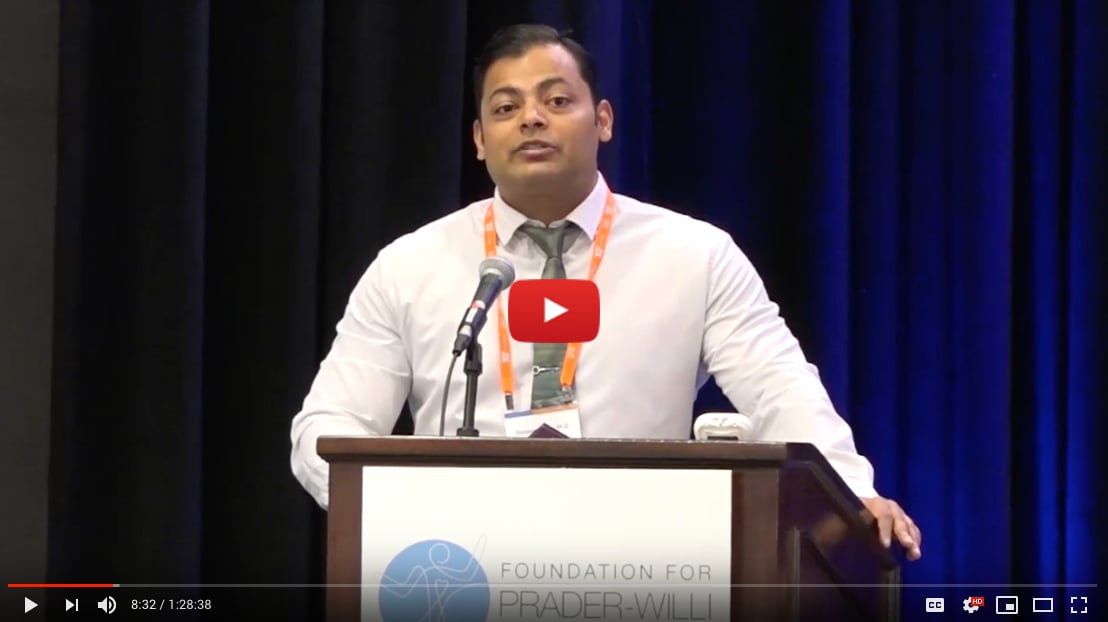Topics: Research
In this 51-minute presentation, Dr. Katy Chambers helped participants understand the IEP (Individualized Education Plan) process and succeed in the IEP journey. Katy Chambers is a school principal of nine years and mom to Daniel (age 7), who lives wi...
Have you ever wondered what is the optimal diet for a person with PWS? We may not be able to answer that question just yet, but in this 29-minute video, Dr. Anne Scheimann from Johns Hopkins shares preliminary data from her study on the Modified Atki...
Topics: Research
Whether you are new to PWS or a veteran, its important to stay current on standards of care. In this 57-minute video, Dr. Jessica Duis describes standards of care for both children and adults with PWS, covering topics such as supplements, oxytocin, c...
Topics: Research
Gene therapies for PWS have the potential to provide transformative treatments but much is still unknown in regards to the feasibility of a successful treatment. In this 53-minute video, Drs. Stormy Chamberlain and Jim Resnick give a brief overview o...
Topics: Research
Most people with PWS struggle with sensory processing, either seeking or avoiding sensory input. In this 54-minute video, occupational therapists Ashley Waguespack and Jessica Boudreaux explain the sensory issues common to PWS, then dive into sensory...
Topics: Research
The Foundation for Prader-Willi Research announces our second round of Research Awards in 2019 totaling $708,577. FPWR is dedicated to supporting research that advances the understanding and treatment of Prader-Willi syndrome (PWS) and to that end, h...
Topics: Research
The PWS Clinical Trials Panel presentation in the video below took place at FPWR’s 2019 Annual Research Symposium and Family Conference. The 90-minute session opens with a quick overview of the drug development process and is followed by presentation...
Topics: Research
Based on the review of data from more than 50% of patients enrolled, the Data Safety Monitoring Board has recommended continuing a phase III clinical trial of DCCR for PWS. The trial, called DESTINY PWS, is a randomized, double-blind, placebo-control...
Topics: Research
Drug development is a long and costly process that can take up to 15 years and cost up to one billion dollars! In this 7-minute video, Dr. Theresa Strong discusses the stages of PWS Drug Development. Don't have time for the full presentation? We've c...
Topics: Research




